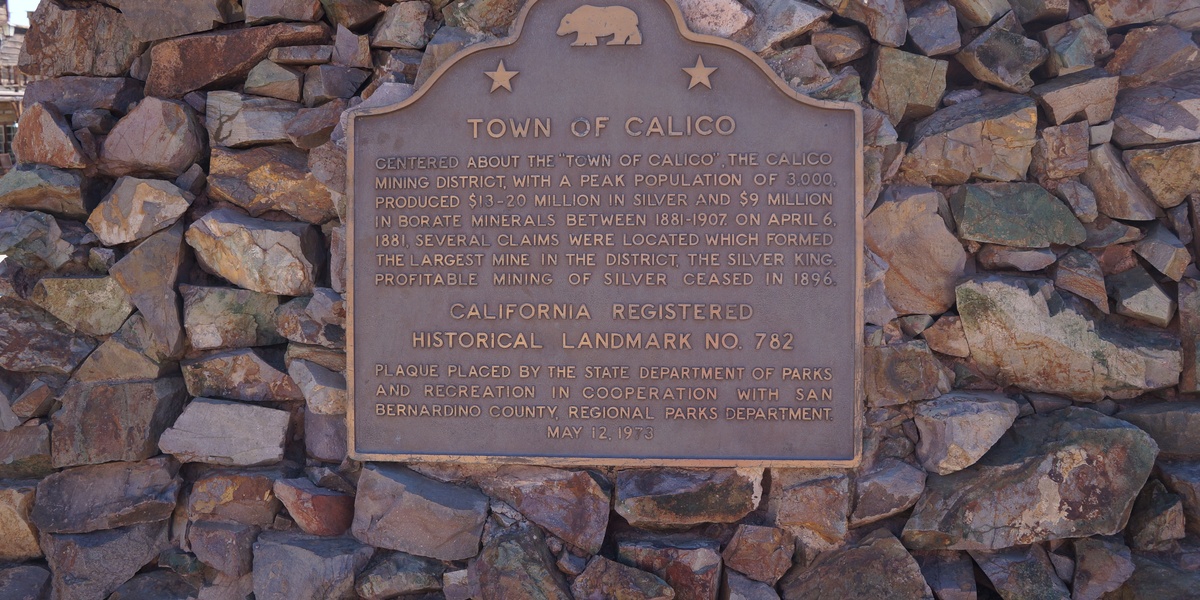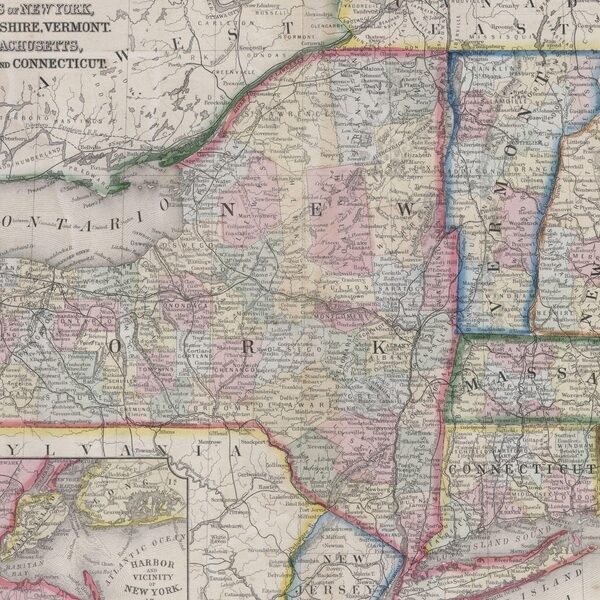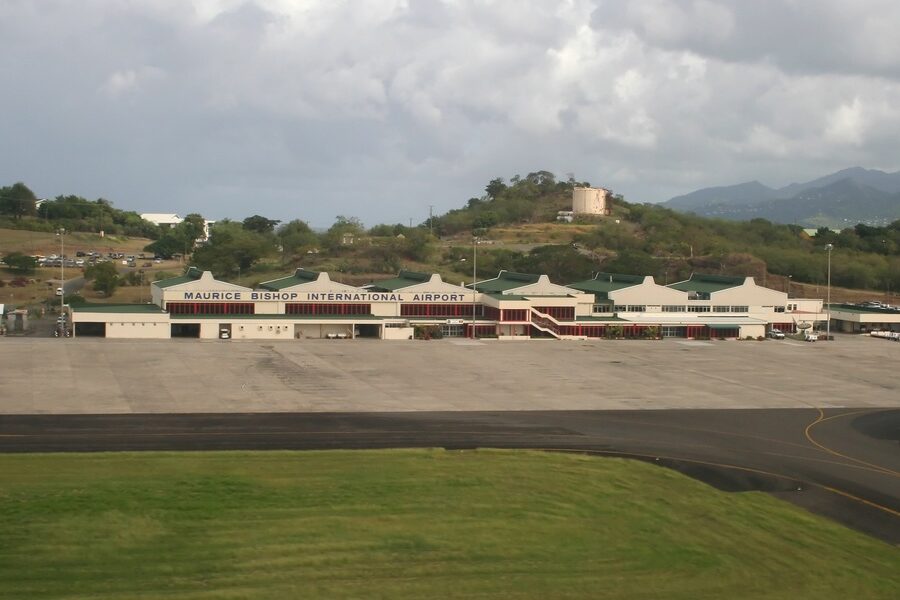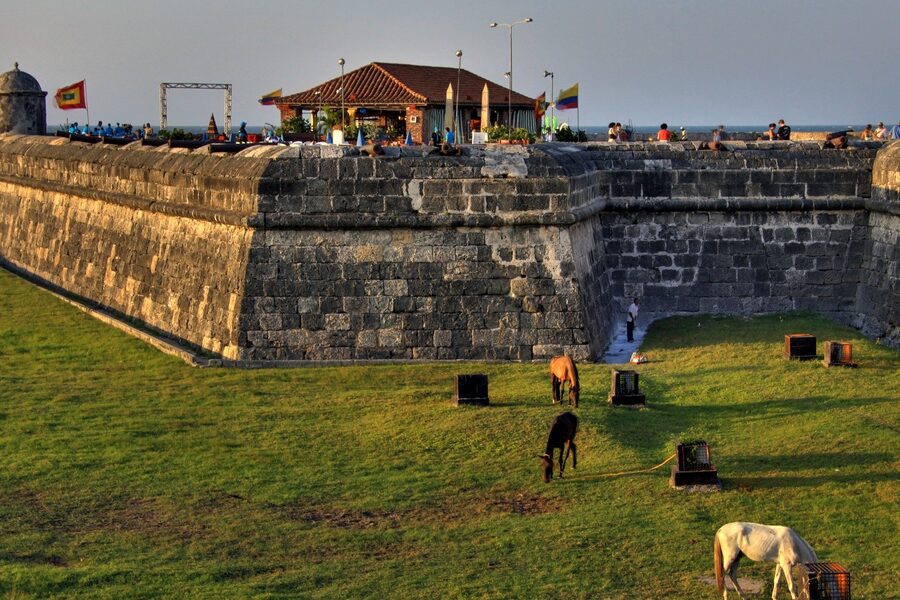The United States may be a relatively young nation, but its landscapes are dotted with countless landmarks that tell stories of pivotal moments, cultural shifts, and the enduring spirit of its people. From ancient indigenous sites to battlefields and architectural marvels, each location offers a profound window into the nation’s past.
To help you explore this rich heritage, we’ve compiled a list of 50 Historical Places in United States of America. This extensive collection takes you from the poignant history of Alcatraz Island to the pioneering spirit commemorated at the Wright Brothers National Memorial. For each entry, you’ll find below key details including its State/Territory, Year Established/Period, and Historical Significance, making it easy to plan your next historical adventure.
How are “historical places” generally defined in the U.S.?
In the United States, a historical place is typically a site, building, structure, or district that holds significant importance to the nation’s past, often linked to pivotal events, influential figures, or distinct cultural and architectural styles. Many are formally recognized and protected by organizations like the National Register of Historic Places, ensuring their preservation for educational and public appreciation.
Historical Places in United States of America
| Place Name | State/Territory | Year Established/Period | Historical Significance |
|---|---|---|---|
| Independence Hall | Pennsylvania | 1753 | Birthplace of the USA; Declaration of Independence and Constitution were signed here. |
| Gettysburg National Military Park | Pennsylvania | 1863 | Site of the Civil War’s turning point and Lincoln’s Gettysburg Address. |
| The Alamo | Texas | 1836 | Symbol of Texas independence from Mexico; site of a pivotal, heroic battle. |
| Pearl Harbor National Memorial | Hawaii | 1941 | Commemorates the attack that propelled the United States into World War II. |
| Mesa Verde National Park | Colorado | c. 600-1,300 AD | Preserves remarkable Ancestral Puebloan cliff dwellings, an ancient cultural hub. |
| Martin Luther King, Jr. National Historical Park | Georgia | 20th Century | Birthplace, church, and grave of the iconic Civil Rights Movement leader. |
| Ellis Island | New York/New Jersey | 1892-1954 | America’s busiest immigrant inspection station, gateway for over 12 million immigrants. |
| Mount Vernon | Virginia | 1734 | Plantation estate and home of George Washington, the first President of the USA. |
| Jamestown Settlement | Virginia | 1607 | Site of the first permanent English settlement in North America. |
| Freedom Trail | Massachusetts | 17th-19th Century | A 2.5-mile path in Boston passing 16 significant Revolutionary War era sites. |
| Fort Sumter National Monument | South Carolina | 1861 | Site of the first shots fired in the American Civil War. |
| Little Rock Central High School | Arkansas | 1957 | A landmark of the Civil Rights Movement for its role in school desegregation. |
| Colonial Williamsburg | Virginia | 18th Century | The world’s largest living history museum, recreating life in colonial America. |
| Monticello | Virginia | 1772 | Primary plantation and architectural masterpiece of President Thomas Jefferson. |
| Cahokia Mounds | Illinois | c. 600-1,400 AD | Site of the largest pre-Columbian Native American city north of Mexico. |
| Alcatraz Island | California | 1934-1963 | Infamous maximum-security federal prison that housed America’s most notorious criminals. |
| Wright Brothers National Memorial | North Carolina | 1903 | Location of the first successful sustained powered flight by the Wright brothers. |
| Manzanar National Historic Site | California | 1942-1945 | Best-preserved Japanese American internment camp from the World War II era. |
| Statue of Liberty | New York | 1886 | An iconic symbol of freedom, democracy, and a welcoming beacon to immigrants. |
| Lincoln Memorial | Washington, D.C. | 1922 | Honors President Abraham Lincoln; a key site for historic speeches and protests. |
| Mount Rushmore | South Dakota | 1941 | Monumental sculpture depicting four influential U.S. presidents in the Black Hills. |
| Appomattox Court House | Virginia | 1865 | Site of General Robert E. Lee’s surrender, effectively ending the Civil War. |
| Plymouth Rock | Massachusetts | 1620 | Traditional site of the Pilgrims’ disembarkation, symbolizing the founding of New England. |
| Faneuil Hall | Massachusetts | 1742 | Dubbed the “Cradle of Liberty” for hosting speeches promoting American independence. |
| Bunker Hill Monument | Massachusetts | 1775 | Commemorates one of the first major battles of the American Revolutionary War. |
| Valley Forge National Historical Park | Pennsylvania | 1777-1778 | Winter encampment site of the Continental Army during the American Revolutionary War. |
| St. Augustine | Florida | 1565 | The oldest continuously inhabited European-established settlement in the contiguous United States. |
| San Antonio Missions National Historical Park | Texas | 18th Century | Collection of five Spanish frontier missions, reflecting colonial expansion and cultural exchange. |
| Independence Rock State Historic Site | Wyoming | 19th Century | A famous landmark for pioneers on the Oregon, Mormon, and California Trails. |
| Golden Spike National Historical Park | Utah | 1869 | Site where the First Transcontinental Railroad was officially completed, uniting the country. |
| Angel Island Immigration Station | California | 1910-1940 | The primary West Coast entry point for immigrants, especially from Asia. |
| Edmund Pettus Bridge | Alabama | 1965 | Site of the “Bloody Sunday” march, a pivotal event for voting rights. |
| National Mall | Washington, D.C. | 1791 | America’s “front yard,” a historic park lined with iconic monuments and museums. |
| Kennedy Space Center | Florida | 1962 | Primary launch center for U.S. human spaceflight, including the Apollo Moon missions. |
| Arlington National Cemetery | Virginia | 1864 | The nation’s most sacred shrine, honoring the men and women who served. |
| Taos Pueblo | New Mexico | c. 1,000 AD | Ancient Native American community continuously inhabited for over 1,000 years. |
| The White House | Washington, D.C. | 1800 | Official residence and workplace of the U.S. president since John Adams. |
| Antietam National Battlefield | Maryland | 1862 | Site of the bloodiest single-day battle in American history, leading to Emancipation Proclamation. |
| Ford’s Theatre | Washington, D.C. | 1865 | Site of the assassination of President Abraham Lincoln by John Wilkes Booth. |
| Hearst Castle | California | 1947 | Lavish estate of publishing magnate William Randolph Hearst, representing the Gilded Age. |
| Graceland | Tennessee | 1957-1977 | Home of Elvis Presley, a global icon of rock and roll music. |
| Hoover Dam | Nevada/Arizona | 1936 | A monumental Great Depression-era public works project and engineering marvel. |
| USS Constitution | Massachusetts | 1797 | World’s oldest commissioned naval vessel afloat, undefeated in battle in the War of 1812. |
| Wounded Knee | South Dakota | 1890 | Site of a tragic massacre of Lakota people by the U.S. Army. |
| National Civil Rights Museum at the Lorraine Motel | Tennessee | 1968 | Site of the assassination of Dr. Martin Luther King, Jr., now a museum. |
| Deadwood | South Dakota | 1876 | A preserved Gold Rush boomtown, epitomizing the legends of the American Wild West. |
| Fort Ticonderoga | New York | 1755 | Strategic fort captured by Ethan Allen during the American Revolutionary War. |
| Old Faithful Inn | Wyoming | 1904 | A National Historic Landmark and the largest log structure in the world. |
| Boston Tea Party Ships & Museum | Massachusetts | 1773 | Commemorates the protest that became a major catalyst for the American Revolution. |
| Vicksburg National Military Park | Mississippi | 1863 | Preserves the site of a crucial 47-day Civil War siege. |
Images and Descriptions
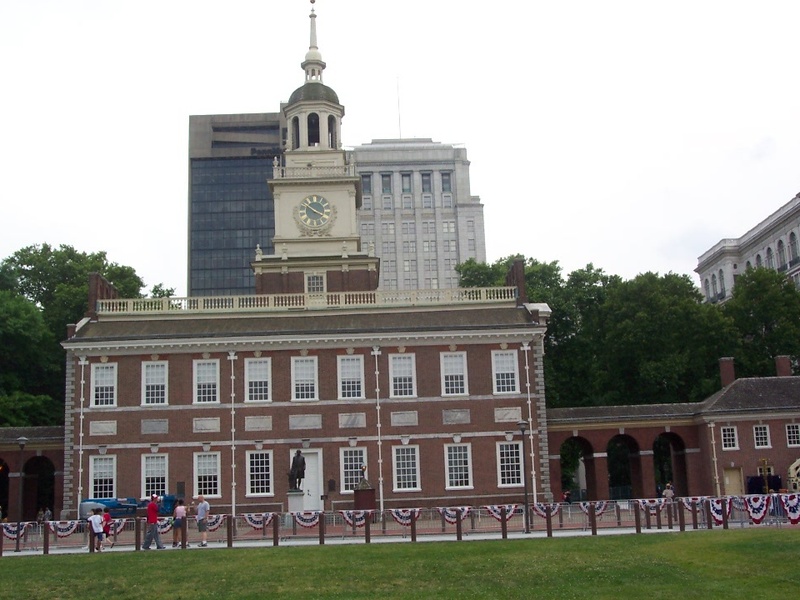
Independence Hall
Independence Hall stands in Philadelphia, Pennsylvania. It is a brick building famous as the place where the Declaration of Independence and the United States Constitution were adopted. This site is central to American democracy.
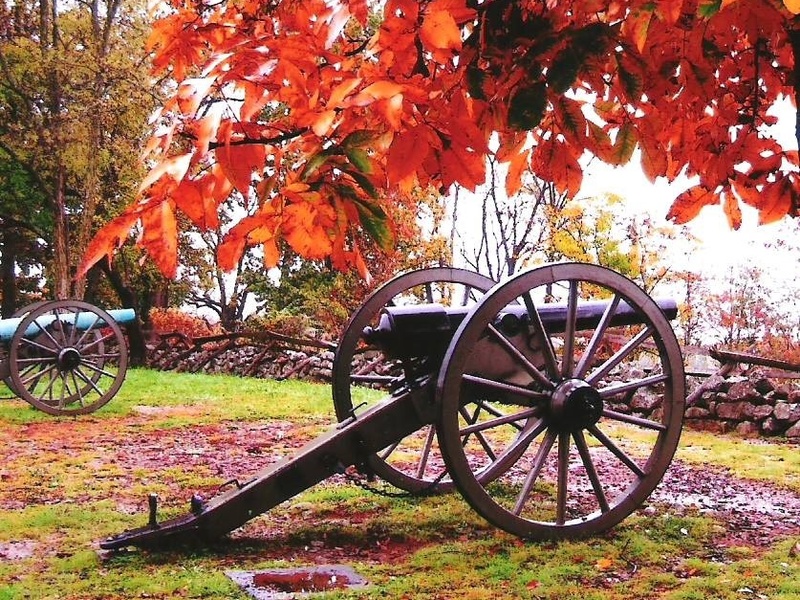
Gettysburg National Military Park
Gettysburg National Military Park is located in Gettysburg, Pennsylvania. It preserves the site of the Battle of Gettysburg, a major turning point in the American Civil War. The park honors soldiers and explains the battle’s impact.
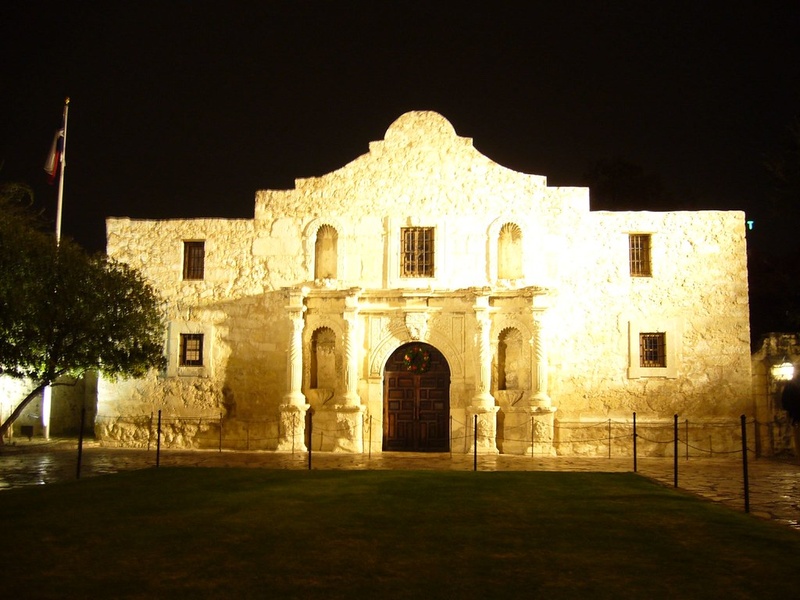
The Alamo
The Alamo is a historic mission and fortress compound in San Antonio, Texas. It was the site of the Battle of the Alamo in 1836, a pivotal event in the Texas Revolution. It symbolizes Texan courage and independence.
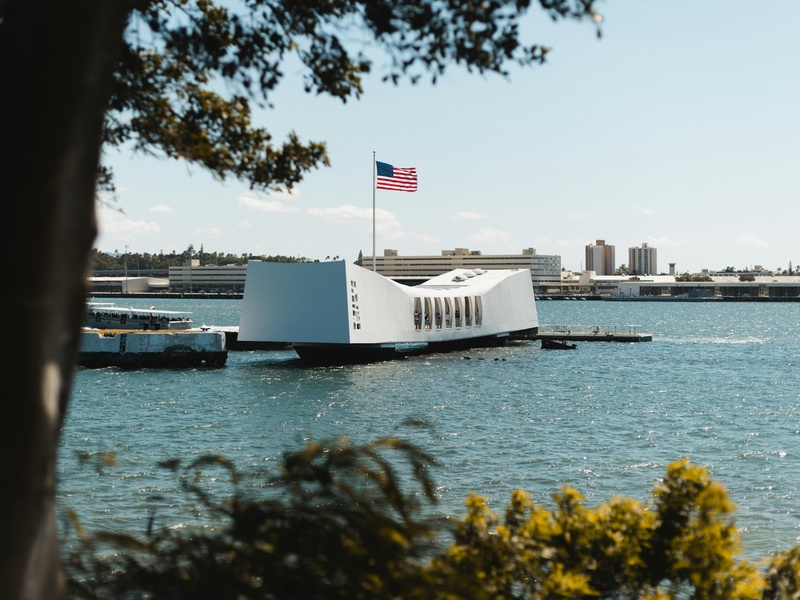
Pearl Harbor National Memorial
The Pearl Harbor National Memorial is in Honolulu, Hawaii. It commemorates the December 7, 1941, attack on Pearl Harbor, which brought the United States into World War II. The USS Arizona Memorial is part of this site.
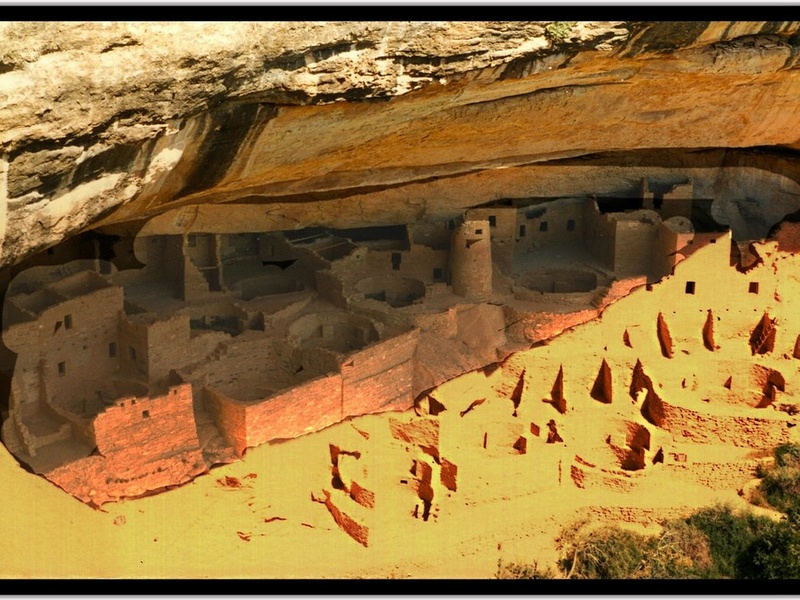
Mesa Verde National Park
Mesa Verde National Park is in southwestern Colorado. It protects well-preserved Ancestral Puebloan cliff dwellings and archaeological sites. The park offers insight into ancient Native American cultures.
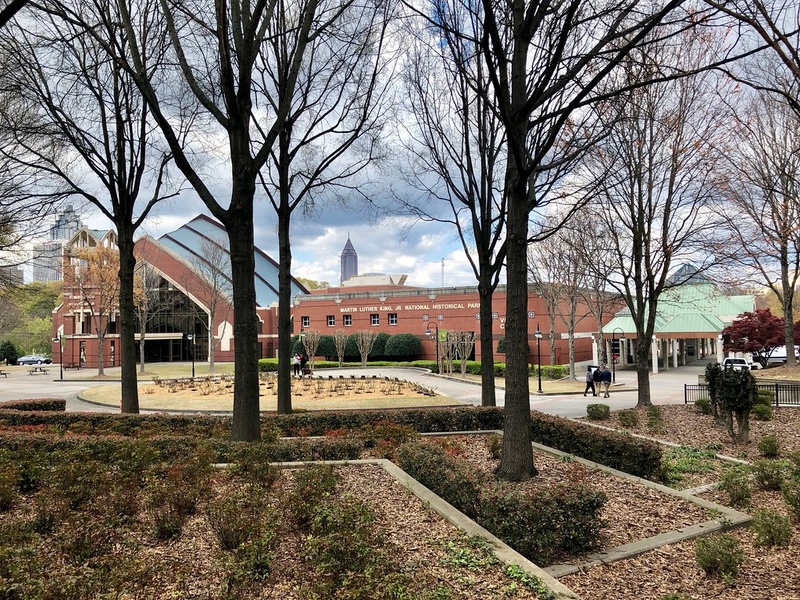
Martin Luther King, Jr. National Historical Park
This park is in Atlanta, Georgia. It preserves the childhood home, church, and grave of Martin Luther King, Jr., a leader of the Civil Rights Movement. It tells the story of civil rights history.
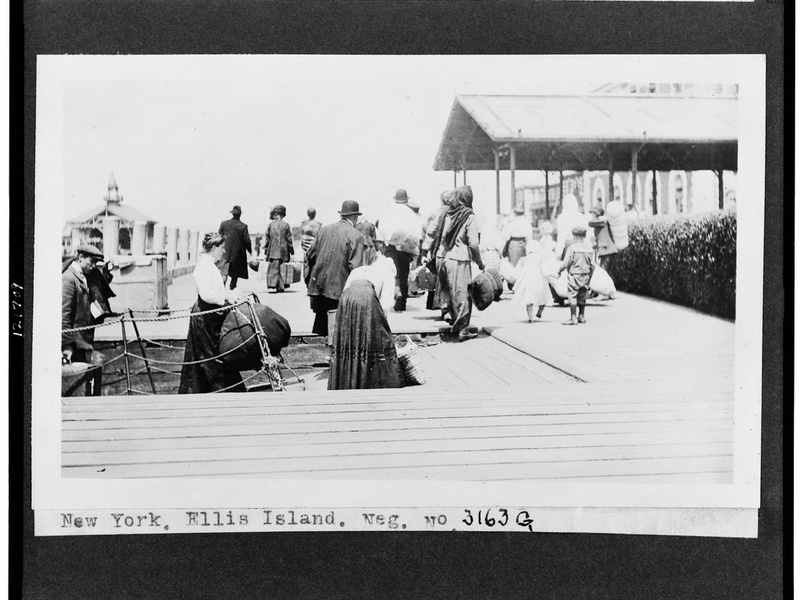
Ellis Island
Ellis Island is in New York Harbor. It served as the busiest immigrant inspection station in the United States from 1892 to 1954. Millions of immigrants passed through this gateway to America.
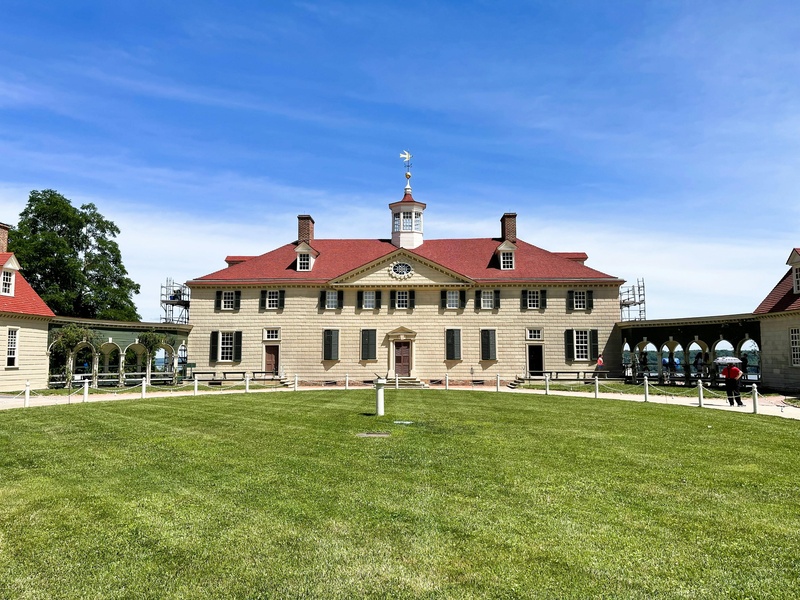
Mount Vernon
Mount Vernon is located in Fairfax County, Virginia. It was the plantation home of George Washington, the first President of the United States. Visitors explore his life, home, and legacy.
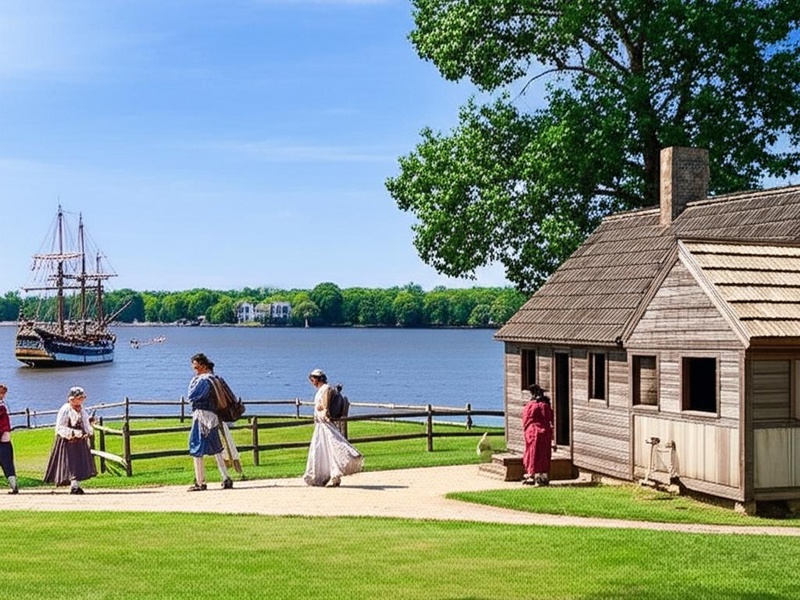
Jamestown Settlement
Jamestown Settlement is a living history museum in Jamestown, Virginia. It recreates the first permanent English colony in North America, founded in 1607. It explains early American colonial life.
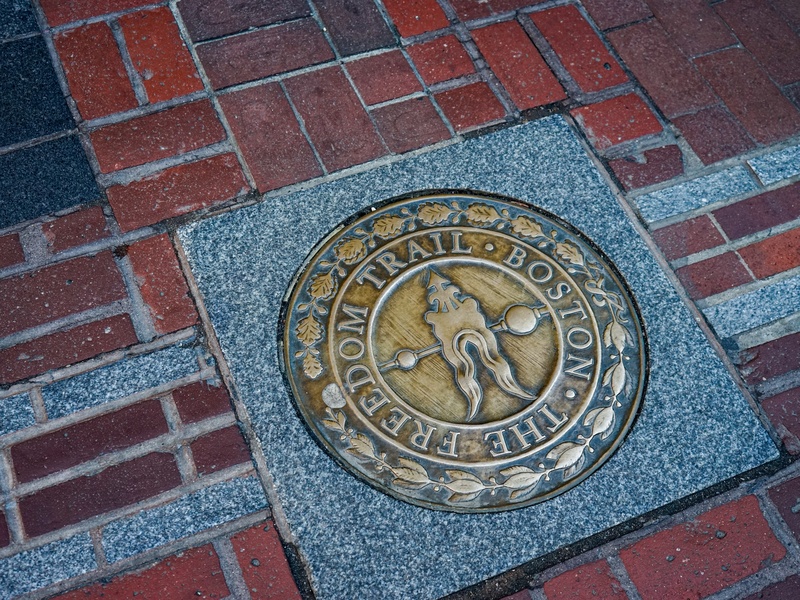
Freedom Trail
The Freedom Trail is a 2.5-mile historic walk in Boston, Massachusetts. It connects 16 historically significant sites, many dating from the American Revolution. These sites include churches, burial grounds, and meeting houses.
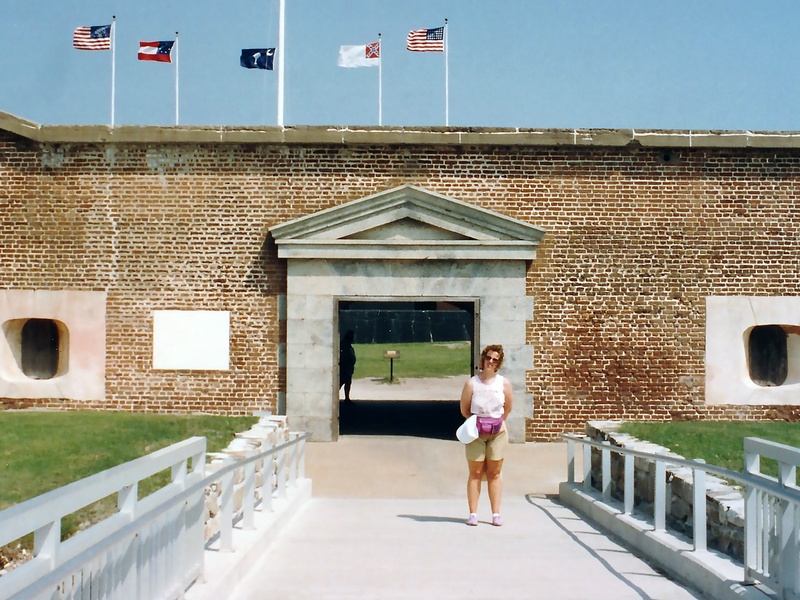
Fort Sumter National Monument
Fort Sumter National Monument is in Charleston Harbor, South Carolina. The first shots of the American Civil War were fired here in April 1861. It marks the beginning of the conflict.
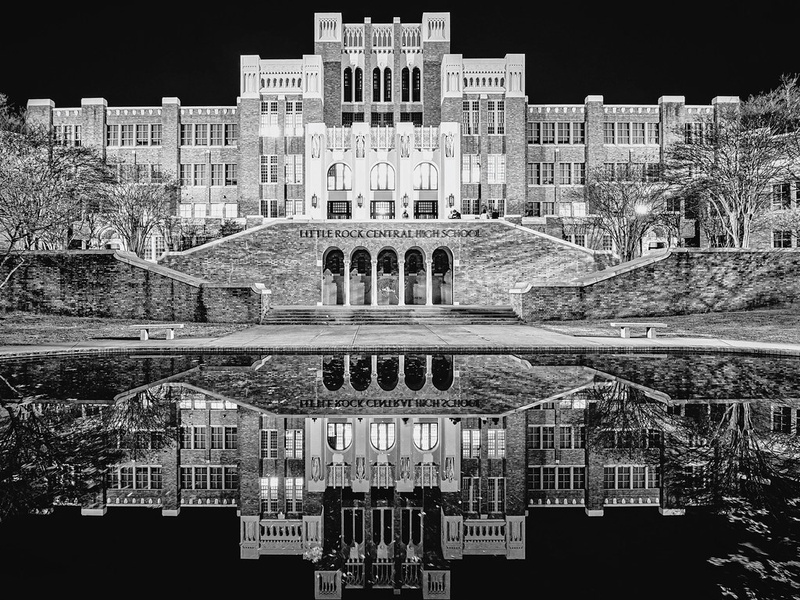
Little Rock Central High School
Little Rock Central High School is in Little Rock, Arkansas. It became a symbol of the Civil Rights Movement in 1957 when nine African American students, the ‘Little Rock Nine,’ integrated the school. It represents school desegregation.
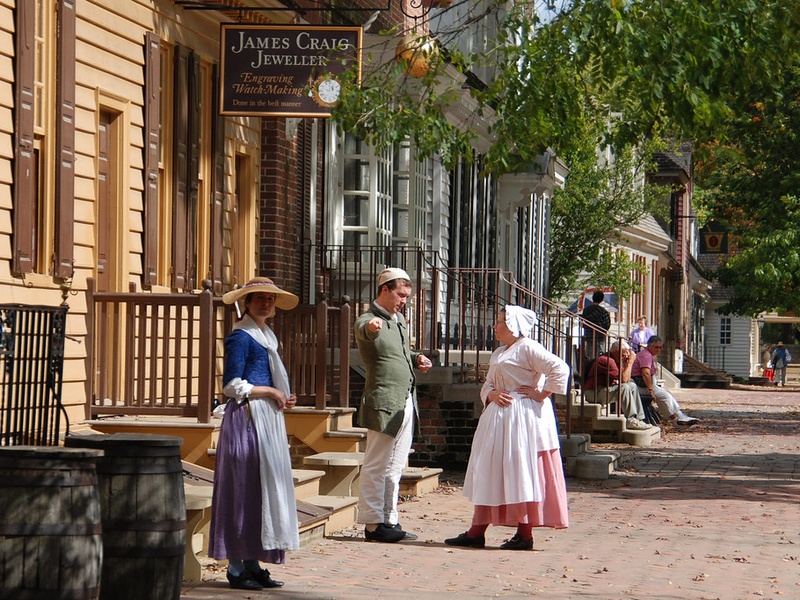
Colonial Williamsburg
Colonial Williamsburg is an outdoor living history museum in Williamsburg, Virginia. It recreates the capital of the Virginia Colony during the 18th century. It shows what daily life was like during colonial times.
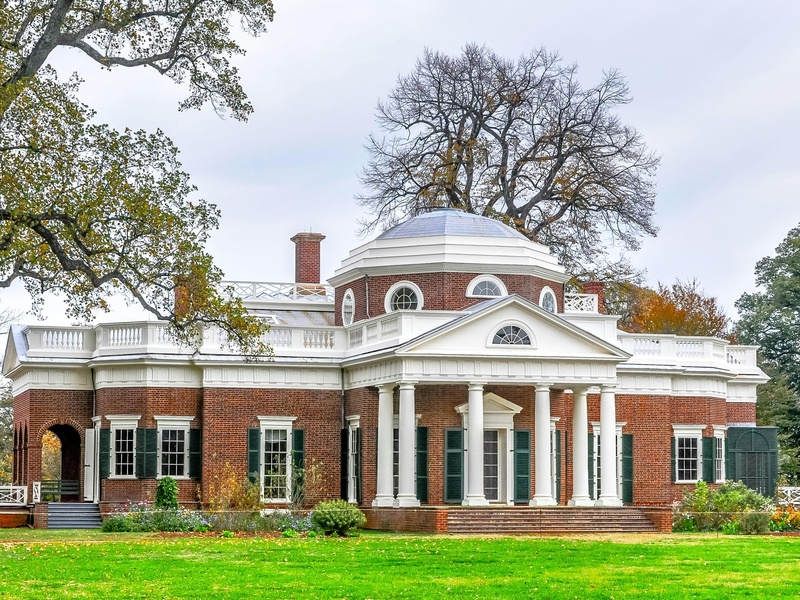
Monticello
Monticello is near Charlottesville, Virginia. It was the primary plantation of Thomas Jefferson, the third President of the United States and author of the Declaration of Independence. It reflects his intellect and architecture.
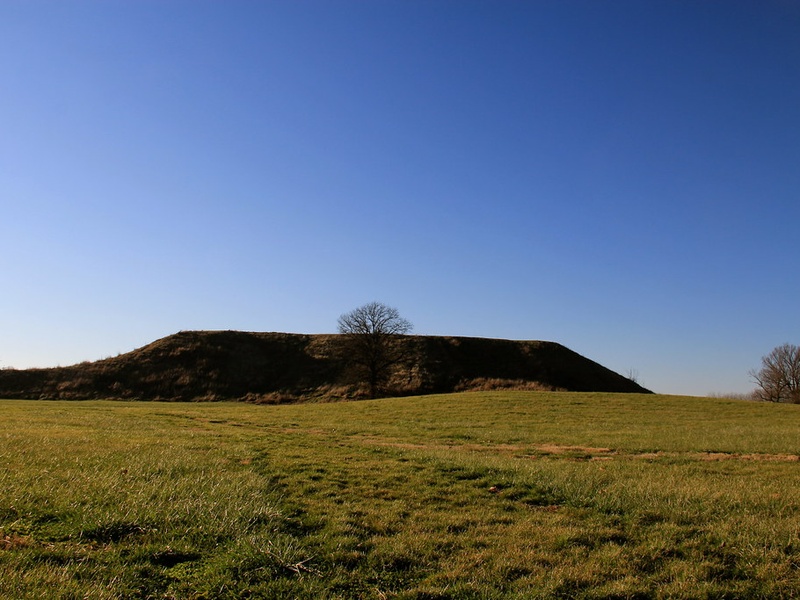
Cahokia Mounds
Cahokia Mounds State Historic Site is located near Collinsville, Illinois. It is the site of a large pre-Columbian Native American city inhabited from about 600 to 1400 AD. It showcases ancient Mississippian culture.
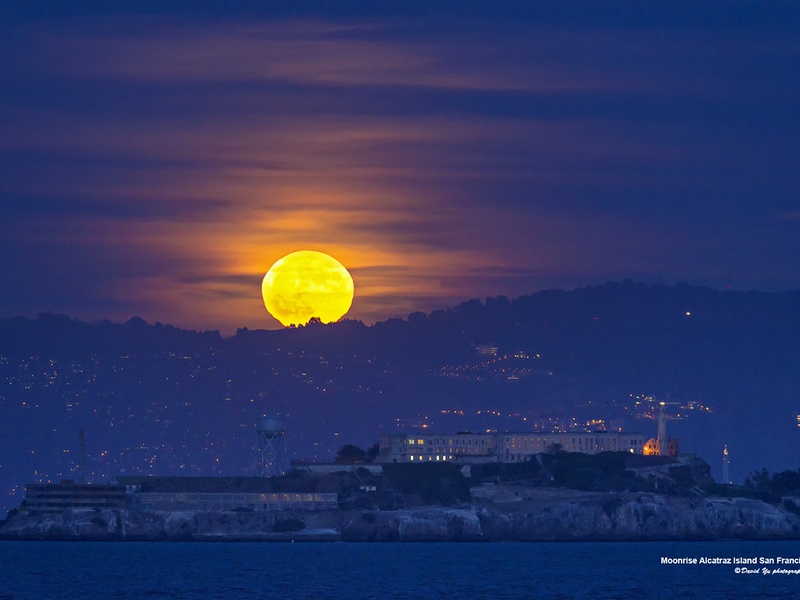
Alcatraz Island
Alcatraz Island is in San Francisco Bay, California. It is famous for its former federal prison, which housed notorious criminals. It also has historical significance as a military fortification and lighthouse site.
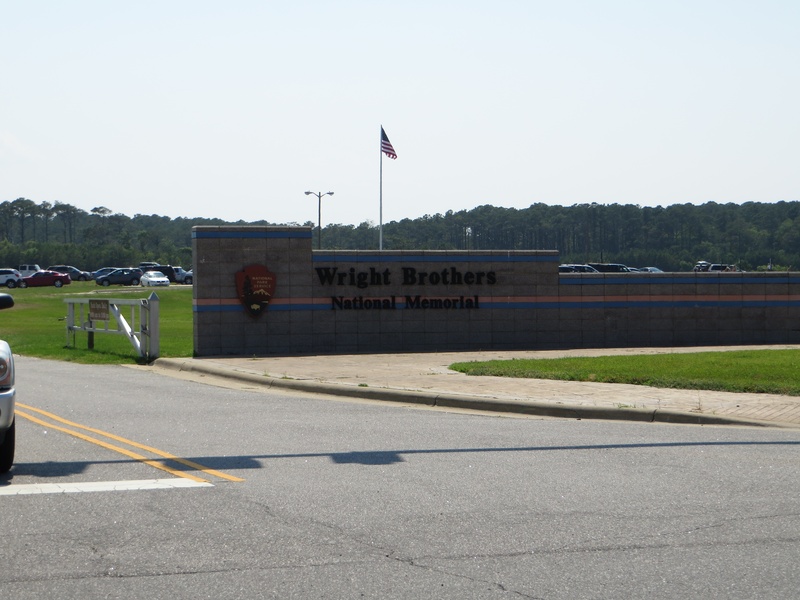
Wright Brothers National Memorial
This memorial is in Kill Devil Hills, North Carolina. It commemorates the first successful powered flights by the Wright brothers in 1903. It celebrates the birth of aviation.
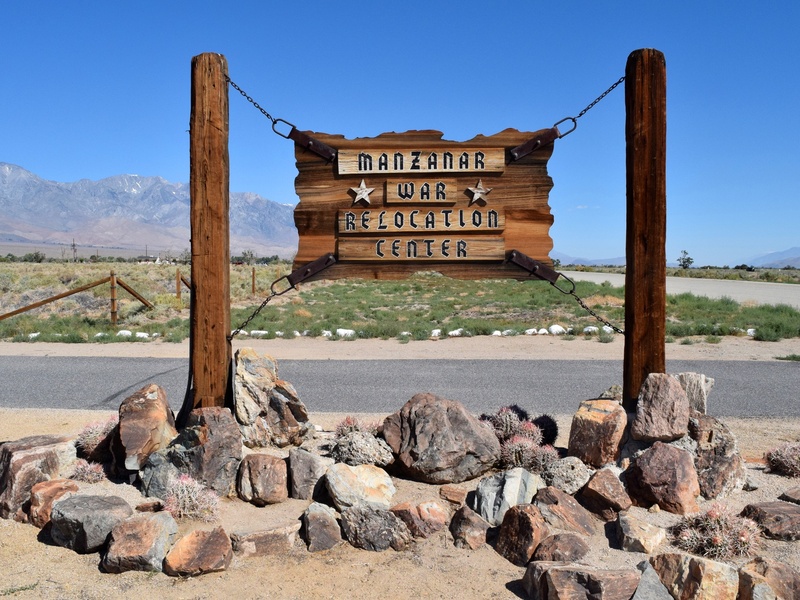
Manzanar National Historic Site
Manzanar National Historic Site is in Independence, California. It was one of ten American concentration camps where Japanese Americans were incarcerated during World War II. It tells a story of civil liberties during wartime.
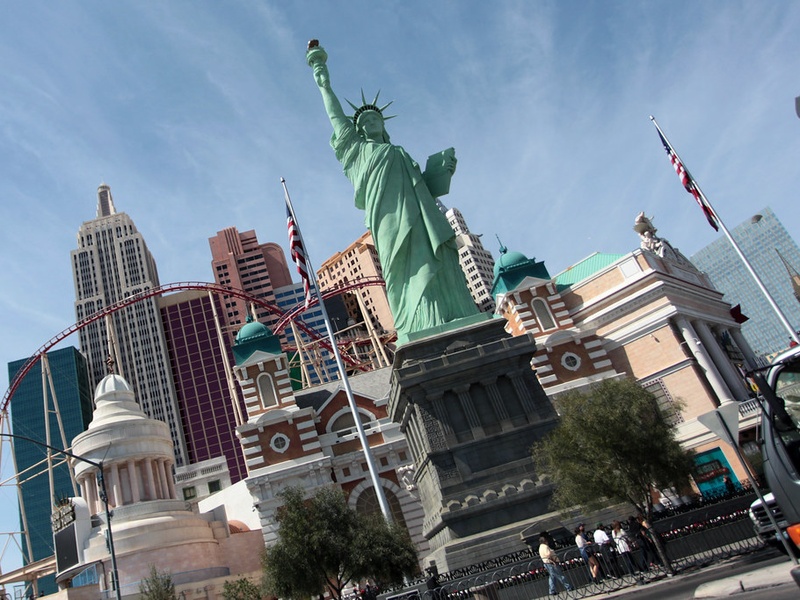
Statue of Liberty
The Statue of Liberty is on Liberty Island in New York Harbor. It is a colossal neoclassical sculpture given by France to the United States. It symbolizes freedom and democracy, welcoming immigrants to America.
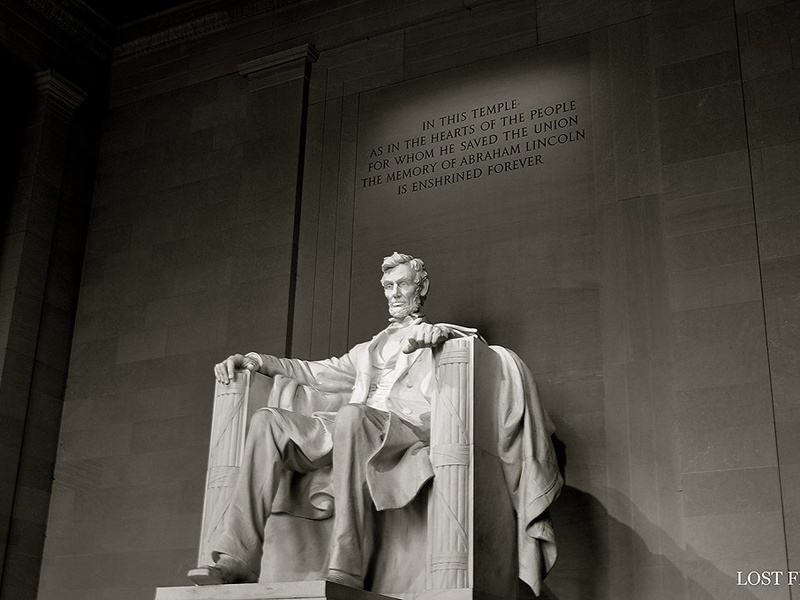
Lincoln Memorial
The Lincoln Memorial is on the National Mall in Washington, D.C. It is an American national monument built to honor the 16th President of the United States, Abraham Lincoln. It hosts many significant public gatherings.
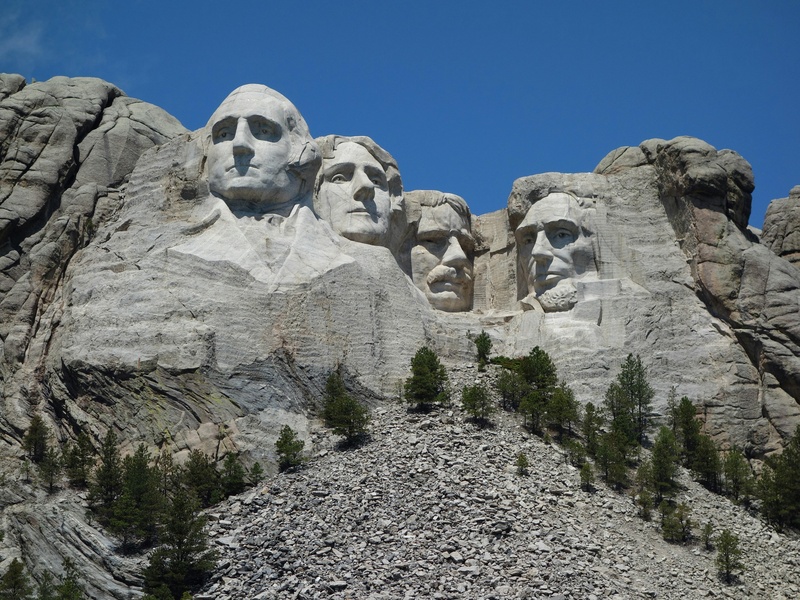
Mount Rushmore
Mount Rushmore National Memorial is in the Black Hills of South Dakota. It features 60-foot tall sculptures of the heads of four United States presidents: George Washington, Thomas Jefferson, Theodore Roosevelt, and Abraham Lincoln. It is a symbol of American leadership.
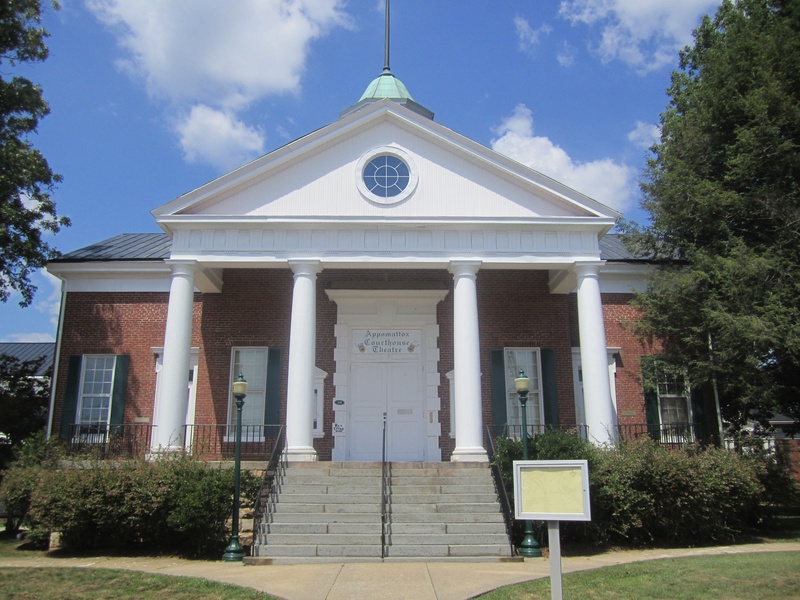
Appomattox Court House
Appomattox Court House National Historical Park is in Appomattox, Virginia. It is the site where Confederate General Robert E. Lee surrendered to Union Lieutenant General Ulysses S. Grant in April 1865. This event effectively ended the American Civil War.

Plymouth Rock
Plymouth Rock is in Plymouth, Massachusetts. It is the traditional site of disembarkation of the Mayflower Pilgrims in 1620. It represents the foundation of the Plymouth Colony and early American settlement.
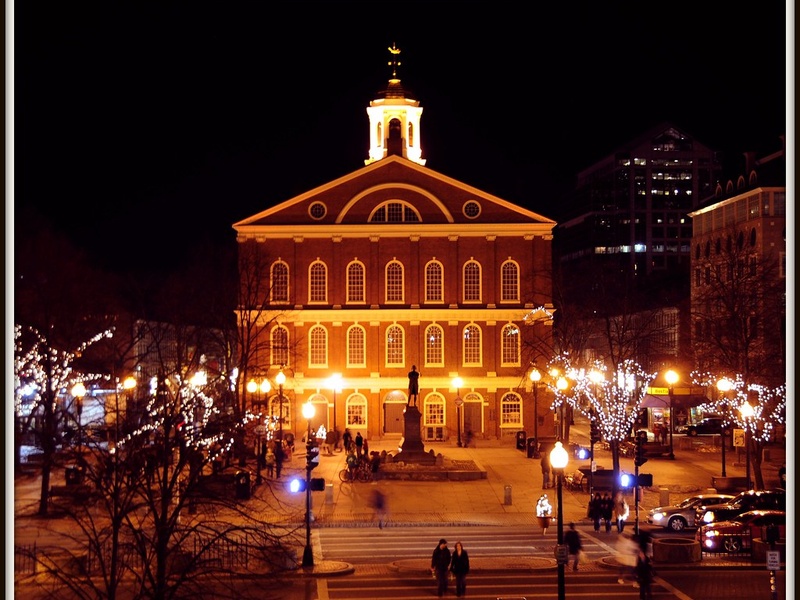
Faneuil Hall
Faneuil Hall is a historic building in Boston, Massachusetts. It served as a marketplace and a meeting hall, a place where colonists debated British rule. It is known as the ‘Cradle of Liberty.’
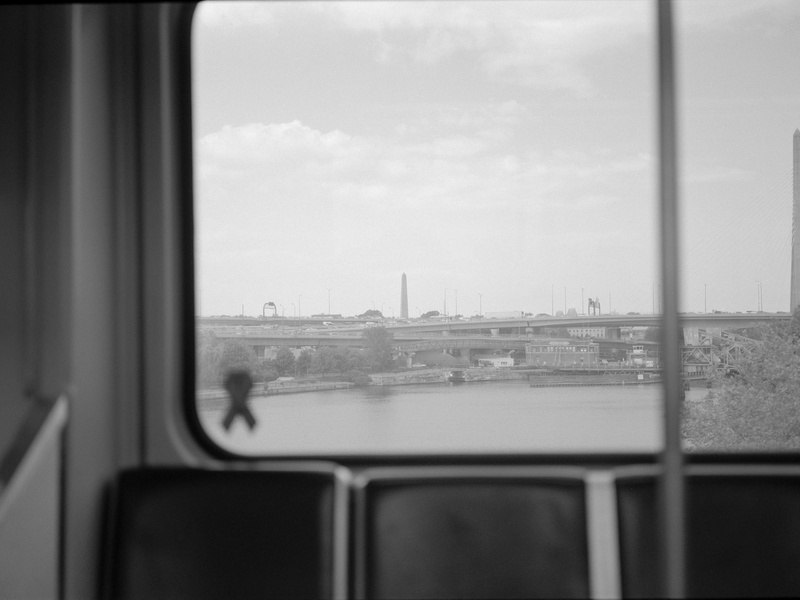
Bunker Hill Monument
The Bunker Hill Monument is in Charlestown, Boston, Massachusetts. It commemorates the Battle of Bunker Hill, one of the first major battles of the American Revolutionary War. It honors the patriots who fought there.
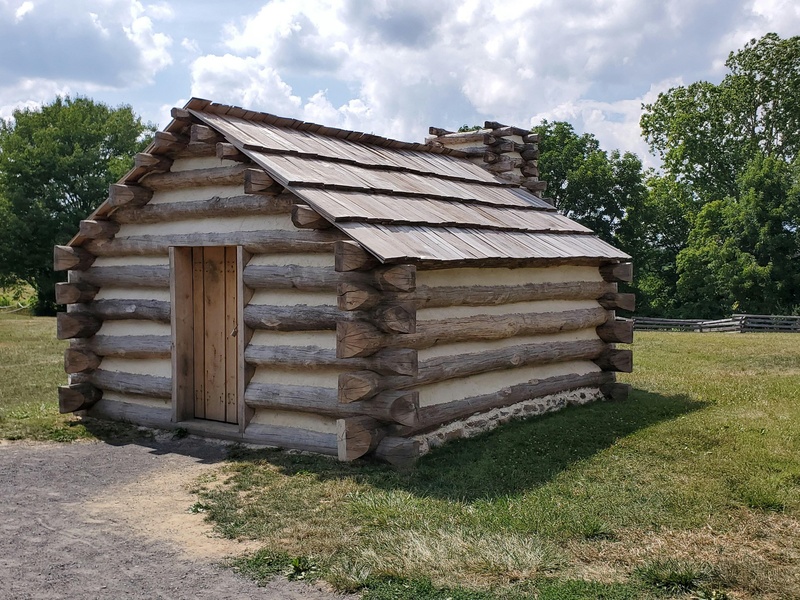
Valley Forge National Historical Park
Valley Forge National Historical Park is in Pennsylvania. It marks the site of the third winter encampment of the Continental Army during the American Revolutionary War. The harsh winter tested General George Washington’s troops.
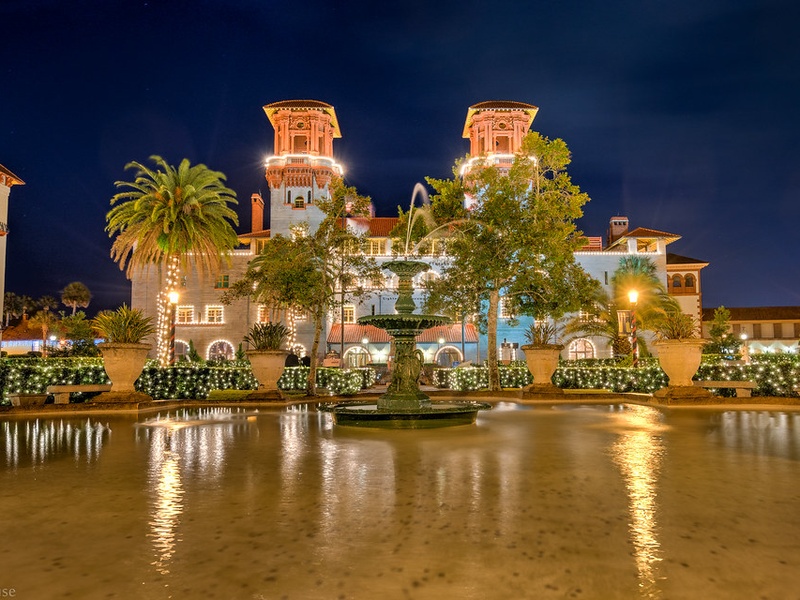
St. Augustine
St. Augustine is a city in northeastern Florida. It is the oldest continuously inhabited European-established settlement in the United States. Its Spanish colonial history is evident in its architecture.
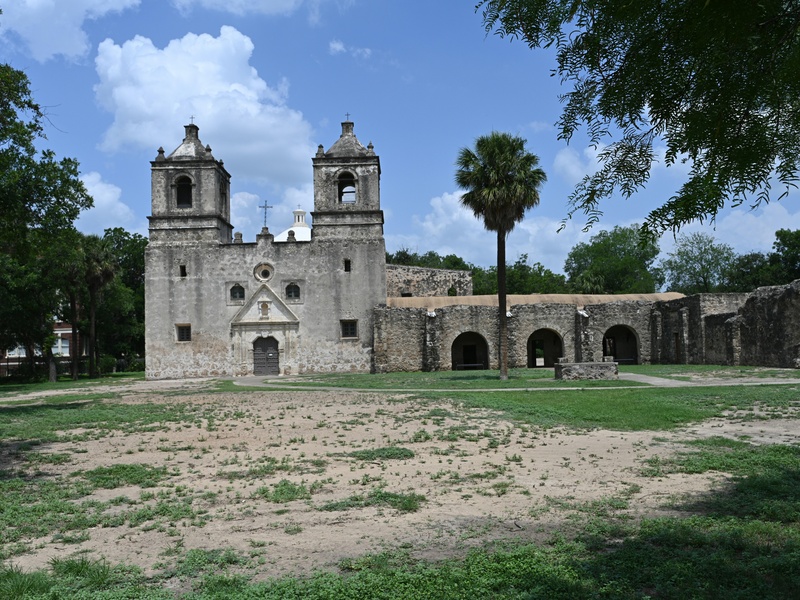
San Antonio Missions National Historical Park
This park is in San Antonio, Texas. It preserves four Spanish frontier missions, part of a system of religious outposts established in the 18th century. These missions represent early Spanish influence in America.
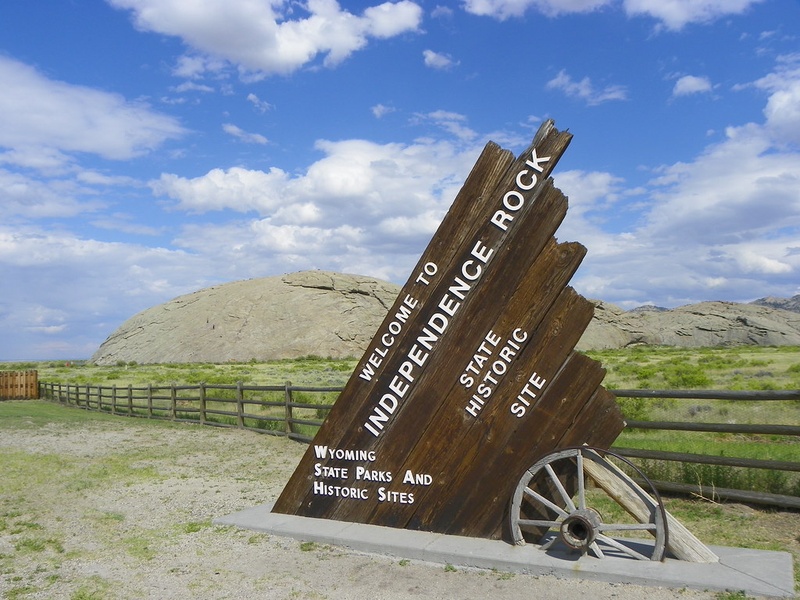
Independence Rock State Historic Site
Independence Rock State Historic Site is in Wyoming. It is a large granite rock that served as a landmark for pioneers traveling west on the Oregon, Mormon, and California Trails. Many carved their names into it.
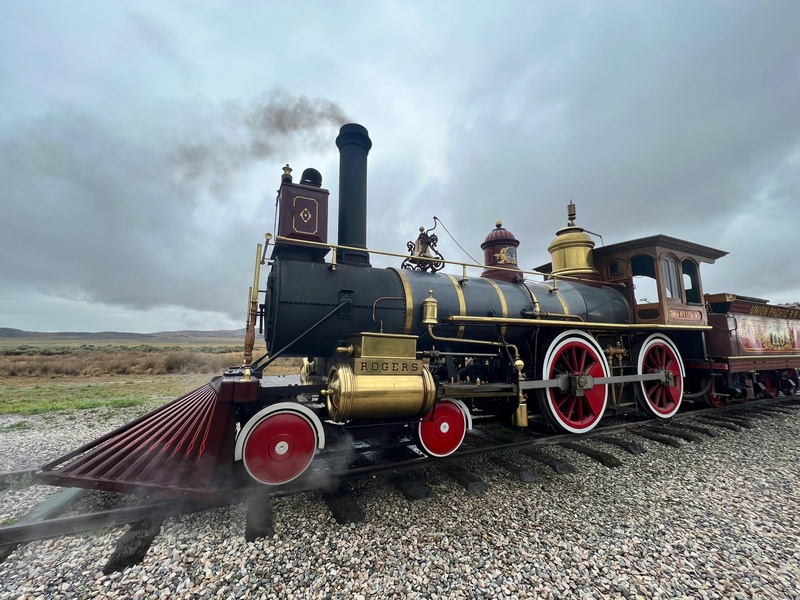
Golden Spike National Historical Park
This park is in Promontory Summit, Utah. It marks the site where the Union Pacific and Central Pacific railroads met in 1869, completing the First Transcontinental Railroad. This event linked the eastern and western United States.
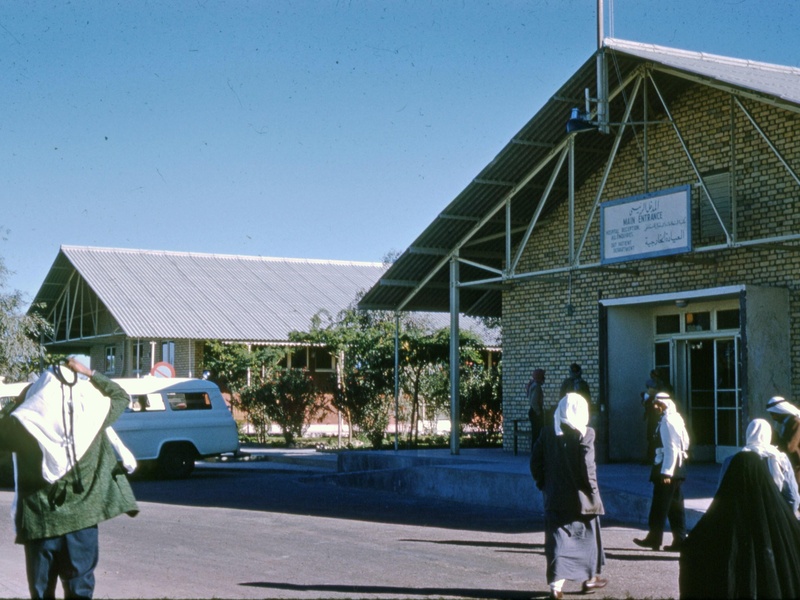
Angel Island Immigration Station
Angel Island Immigration Station is on Angel Island in San Francisco Bay, California. It was the primary immigration station on the West Coast, processing immigrants from Asia and other countries. It served as a detention center for Chinese immigrants.
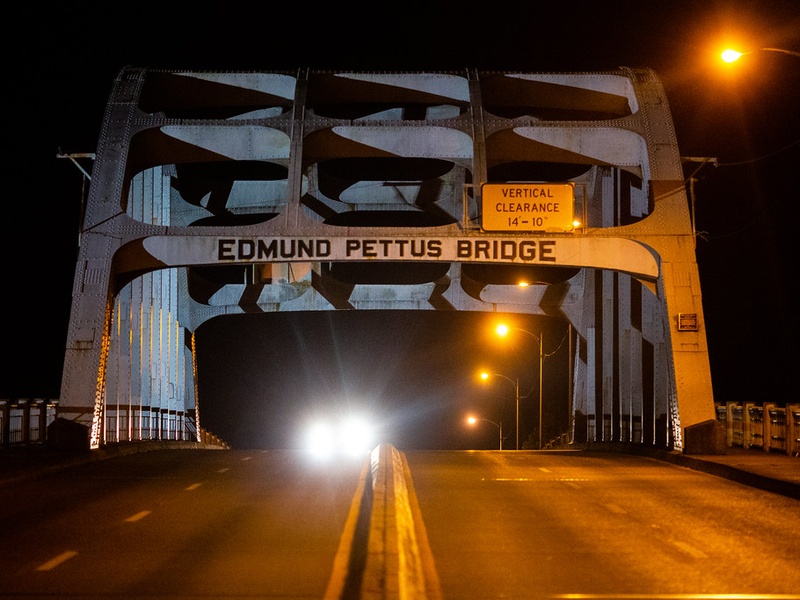
Edmund Pettus Bridge
The Edmund Pettus Bridge is in Selma, Alabama. It was the site of the ‘Bloody Sunday’ attack on civil rights marchers in 1965. This event galvanized support for the Voting Rights Act.
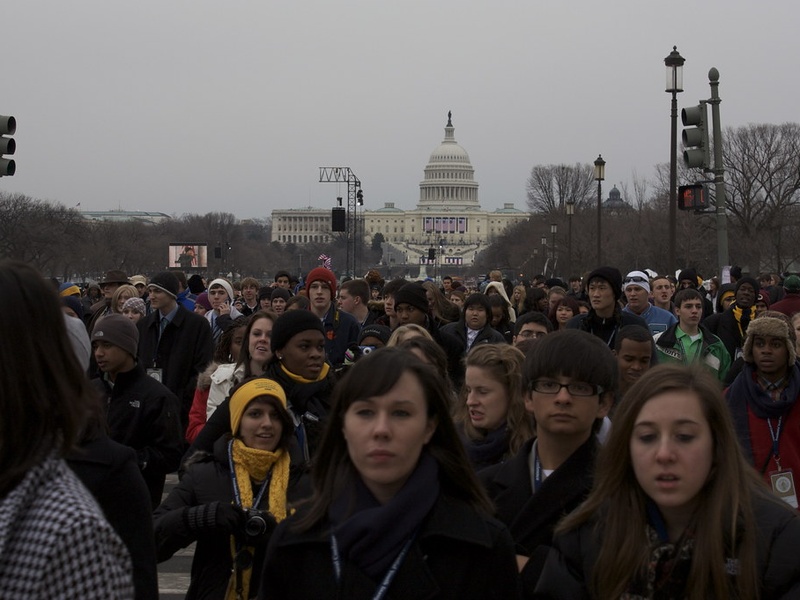
National Mall
The National Mall is a large open-air park in Washington, D.C. It contains many national monuments, museums, and memorials. It serves as a prominent gathering place for protests, celebrations, and national events.

Kennedy Space Center
The Kennedy Space Center is on Merritt Island, Florida. It is a NASA facility that has been the launch sight for many U.S. manned space missions. It showcases the history and future of American space exploration.
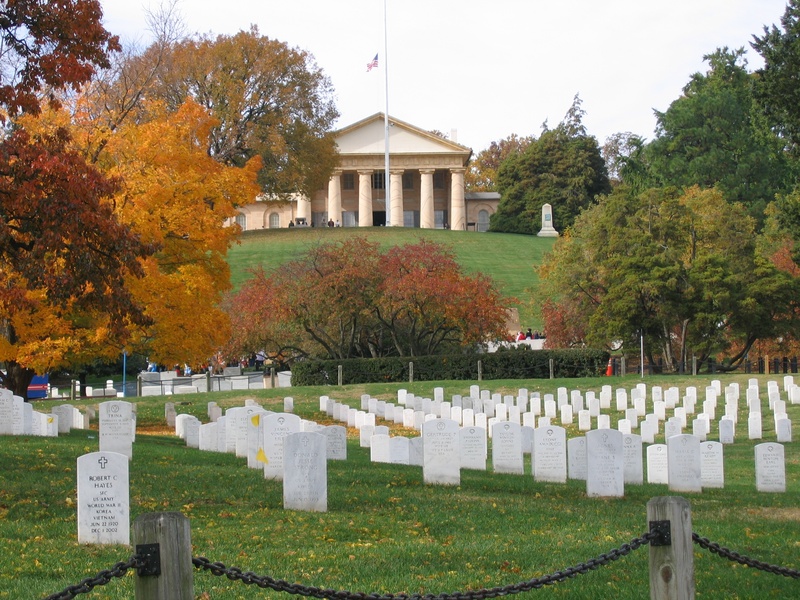
Arlington National Cemetery
Arlington National Cemetery is in Arlington, Virginia. It serves as the nation’s premier military cemetery and a tribute to the men and women who have served the United States. Many notable figures are buried there.
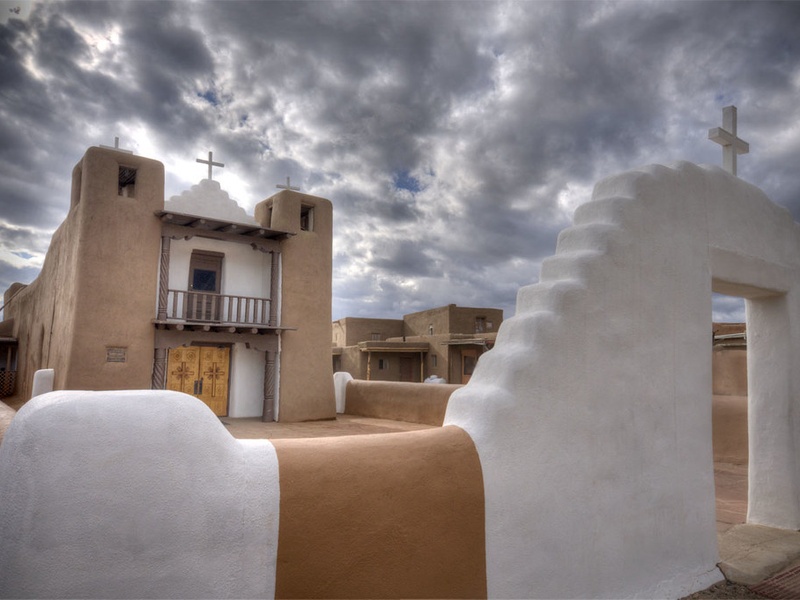
Taos Pueblo
Taos Pueblo is an ancient pueblo belonging to a Tiwa-speaking Native American tribe. It is located near Taos, New Mexico. It is one of the oldest continuously inhabited communities in the United States.
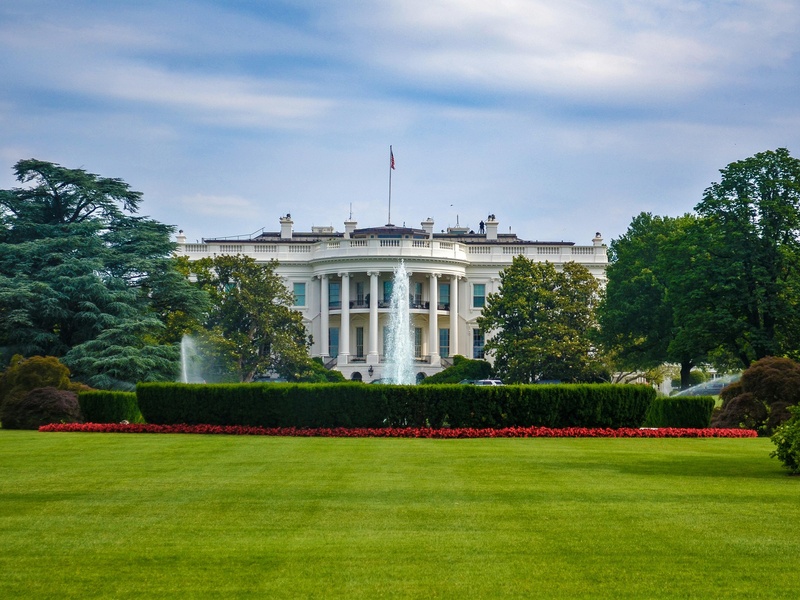
The White House
The White House is in Washington, D.C. It is the official residence and principal workplace of the President of the United States. This iconic building serves as a symbol of American democracy and leadership.
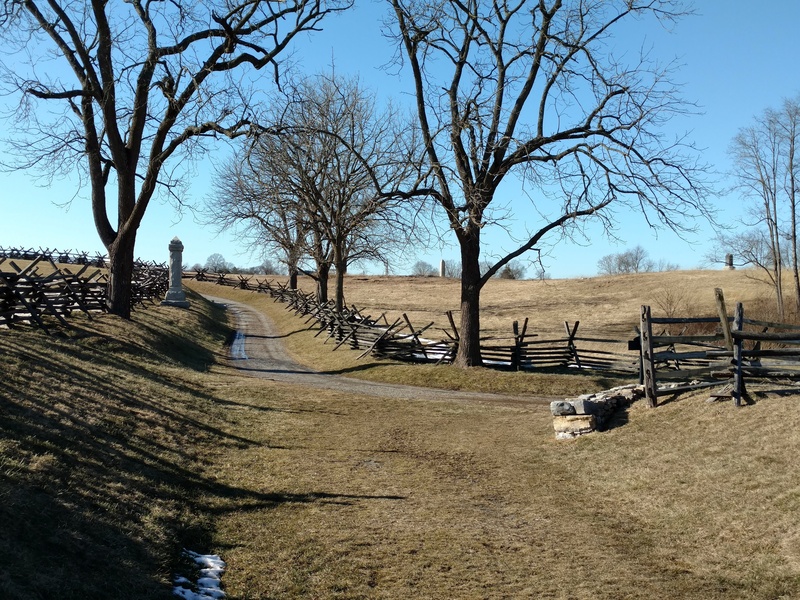
Antietam National Battlefield
Antietam National Battlefield is near Sharpsburg, Maryland. It preserves the site of the Battle of Antietam, fought in September 1862 during the American Civil War. It was the bloodiest single-day battle in U.S. history.
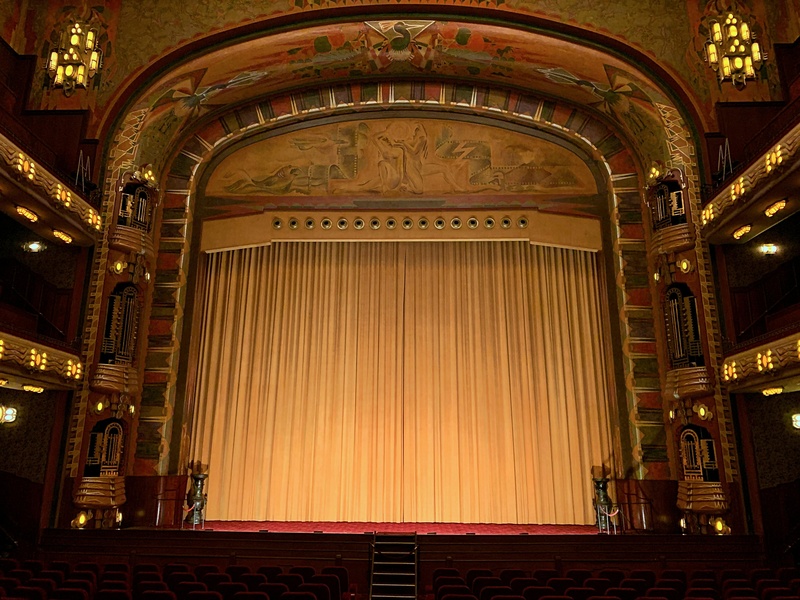
Ford’s Theatre
Ford’s Theatre is in Washington, D.C. It is infamous as the site of the assassination of President Abraham Lincoln in 1865. The theater now functions as a historical landmark and working theater.
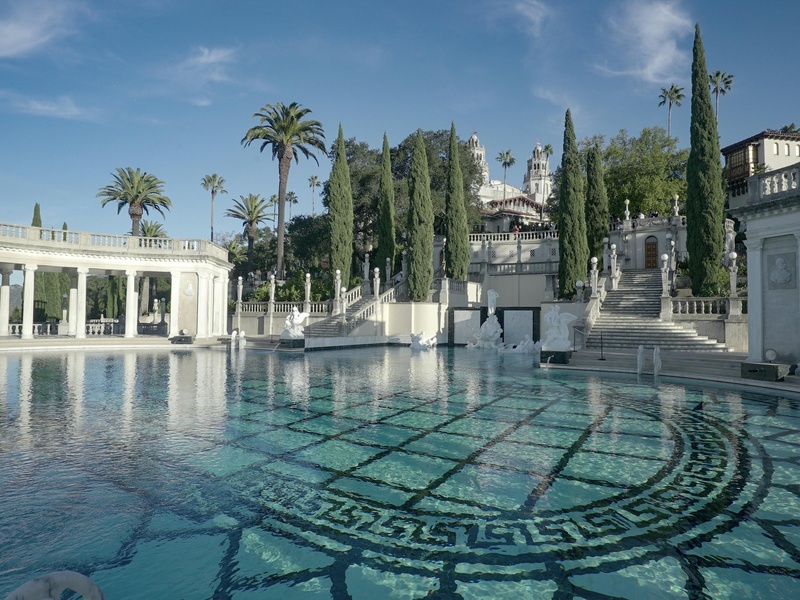
Hearst Castle
Hearst Castle is a historic estate located on the Central Coast of California. It was the residence of newspaper magnate William Randolph Hearst. The estate is notable for its opulent architecture and art collection.

Graceland
Graceland is a mansion in Memphis, Tennessee. It was the home of rock and roll legend Elvis Presley. It is a significant cultural landmark for music history and a popular tourist attraction.
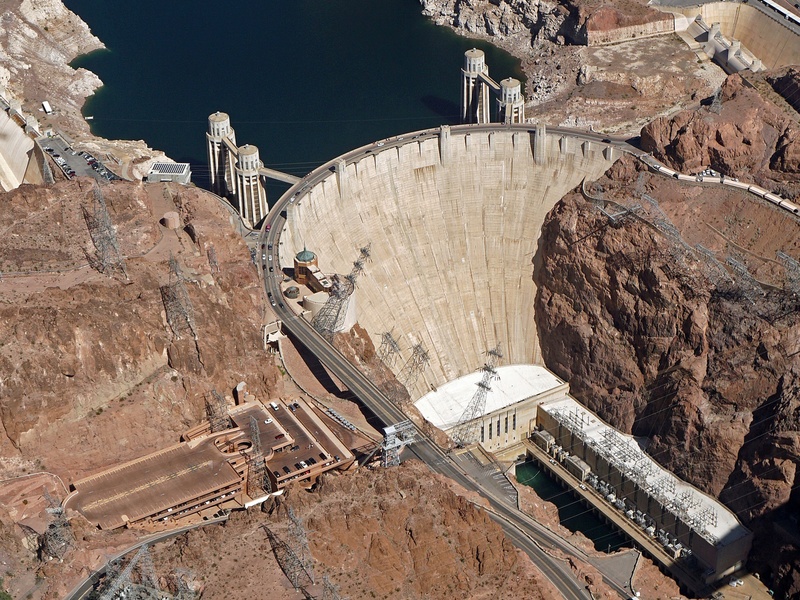
Hoover Dam
Hoover Dam is a concrete arch-gravity dam in the Black Canyon of the Colorado River, on the border between Nevada and Arizona. Built during the Great Depression, it is a marvel of engineering and provided power.
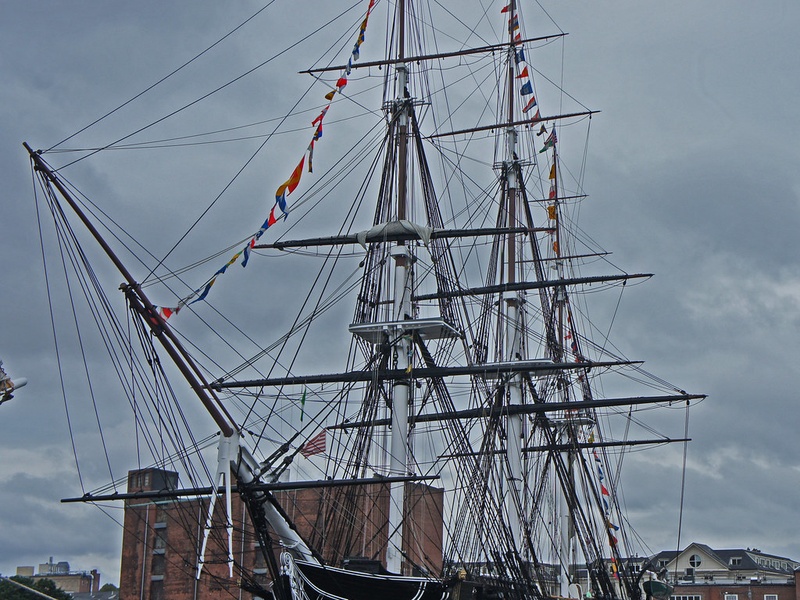
USS Constitution
The USS Constitution is a wooden-hulled, three-masted heavy frigate of the United States Navy. Launched in 1797, it is the world’s oldest commissioned naval vessel still afloat. It is known as ‘Old Ironsides.’
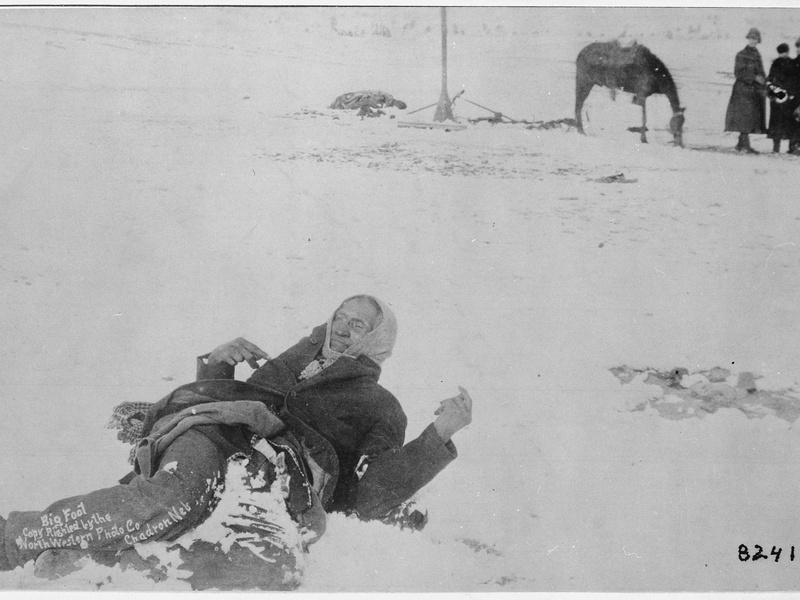
Wounded Knee
Wounded Knee, located on the Pine Ridge Indian Reservation in South Dakota, was the site of two major historical events: the massacre of Lakota Sioux in 1890 and the American Indian Movement occupation in 1973. It is a site of Native American historical significance.
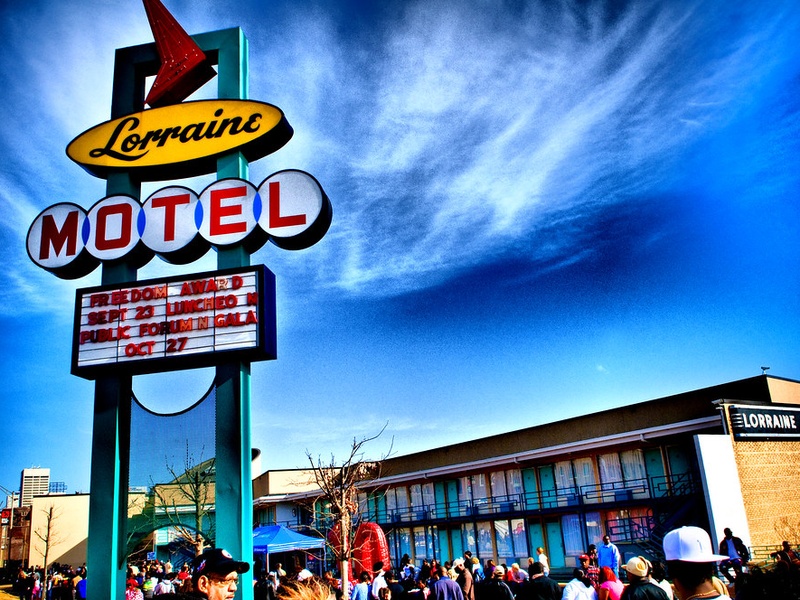
National Civil Rights Museum at the Lorraine Motel
This museum is in Memphis, Tennessee. It is built around the former Lorraine Motel, where Martin Luther King, Jr. was assassinated. It chronicles the history of the American Civil Rights Movement.
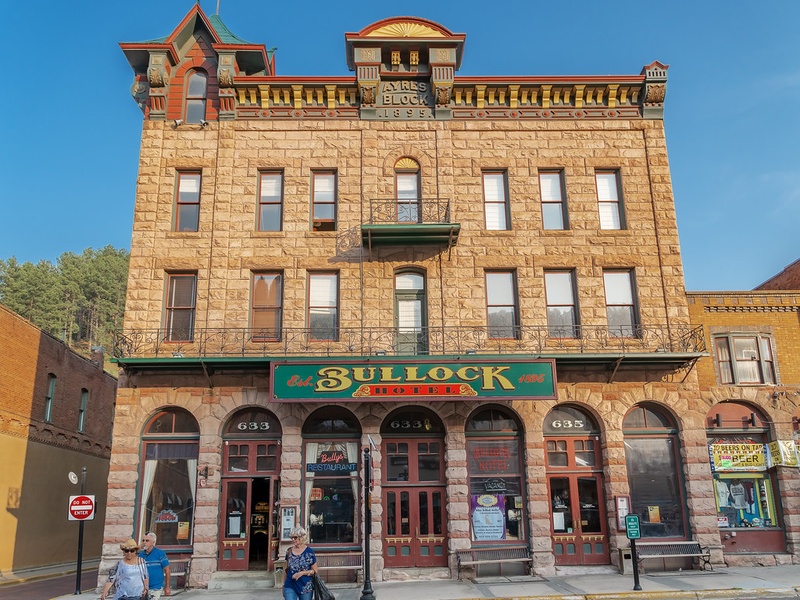
Deadwood
Deadwood is a city in South Dakota. It is known for its rich history during the 1876 Gold Rush and its Wild West characters like Wild Bill Hickok and Calamity Jane. The city preserves its frontier past.
Fort Ticonderoga
Fort Ticonderoga is a large 18th-century star fort in upstate New York. It played a major role in the French and Indian War and the American Revolutionary War. It sits at a crucial military portage point.
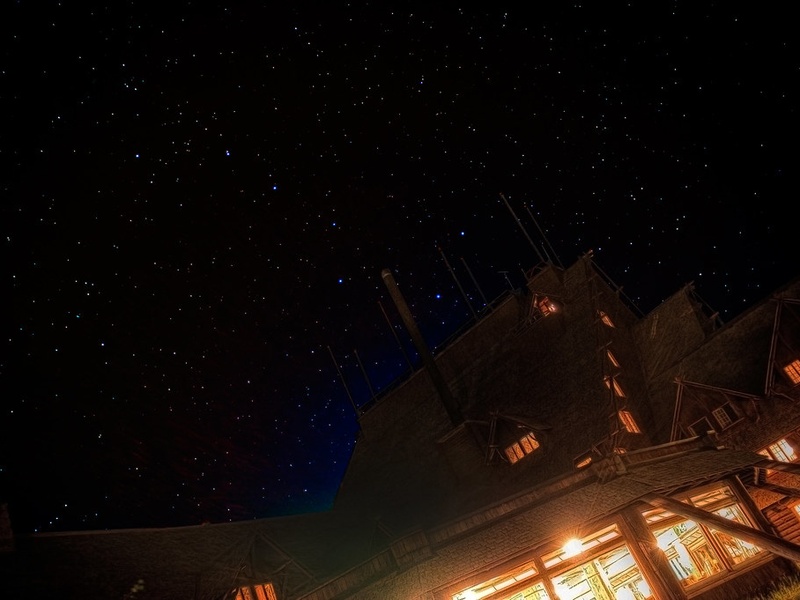
Old Faithful Inn
The Old Faithful Inn is a historic hotel located in Yellowstone National Park, Wyoming. It is known for its rustic architecture and its proximity to the Old Faithful geyser. It is one of the largest log structures in the world.
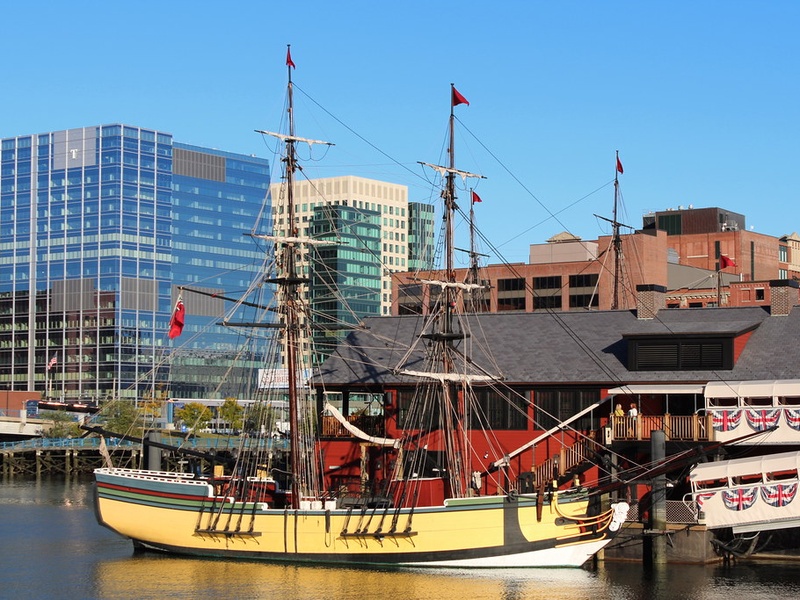
Boston Tea Party Ships & Museum
This museum is in Boston, Massachusetts. It offers an interactive experience about the Boston Tea Party, a key event leading to the American Revolution. It includes replicas of the historic tea ships.
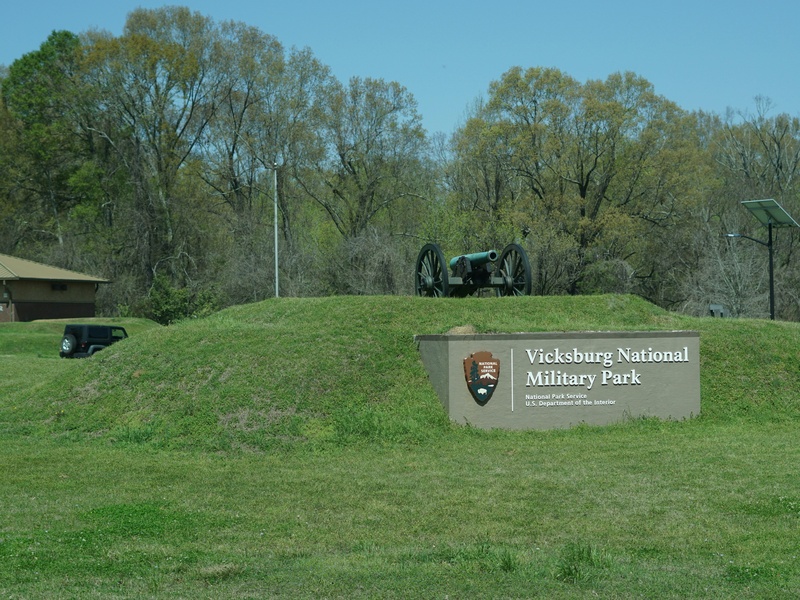
Vicksburg National Military Park
Vicksburg National Military Park is in Vicksburg, Mississippi. It preserves the site of the Battle of Vicksburg, a critical Union victory during the American Civil War. The park includes trenches, cannons, and monuments.

